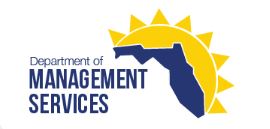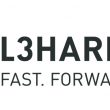Florida statewide LMR ‘absolutely’ will be available to public safety current L3Harris contract expires
Florida state and local agencies subscribing to the Statewide Law Enforcement Radio System (SLERS) will be able to continue using the LMR network after the existing contract with L3Harris expires in a little more than eight months, the Florida Department of Management Services (DMS) clarified today in a statement.
“Users will absolutely have a SLERS system next July,” according to a DMS statement provided to IWCE’s Urgent Communications. “DMS will ensure the operations of this critical public-safety communications system for its law-enforcement partners throughout the state and will work with stakeholders to accomplish this mission.
“DMS continues to discuss operations and maintenance of SLERS with L3Harris while planning for the next-generation system.”
SLERS is Florida’s statewide LMR network, which utilizes aging EDACS technology. L3Harris owns and operates SLERS, but the current contract is due to expire at the end of June 2021. This circumstance is why a SLERS contract extension is needed, but no deal has been announced to date.
DMS provided the statement after IWCE’s Urgent Communications published an article quoting participants in this week’s SLERS Joint Task Force Technical Committee meeting discussing the uncertainty surrounding SLERS in light of the absence of an extension agreement with L3Harris. As stated in the article, sources familiar with the situation have expressed optimism that the state’s LMR deal with L3Harris will be extended.
For several months, representatives of agencies that utilize SLERS have emphasized the need for clarity about the availability of the radio system—and under what financial and logistical conditions—as soon as possible, so they can make technical and budgetary plans before the Florida Legislature begins its session on March 2.
Many Florida state and local agencies depend on SLERS to deliver mission-critical voice communications, even in the wake of natural disasters like hurricanes. Although officials have applauded the reliability of SLERS, the state has planned an upgrade from EDACS technology for several years and selected Motorola Solutions to build a P25 system after a lengthy procurement process, which included a protest from L3Harris.
However, DMS announced in January that it ended talks with Motorola Solutions after the LMR giant declined to sign a contract based on the terms of its bid, according to a state official. At the time, Florida DMS Secretary Jonathan Satter wrote in a letter to Motorola Solutions that Florida DMS would “move toward the new procurement of a next-generation system”—language reiterated in today’s statement from DMS.
A $2.4 million item in the Florida state budget provides some guidance about the state’s current vision for SLERS II.
“[DMS] must release a competitive procurement and, thereafter, issue an award for the replacement of the Statewide Law Enforcement Radio System,” according to the budget item. “At a minimum, future services must utilize the industry-standard Project 25 Phase II delivery methodology. The procurement must also consider emerging technologies to enhance interoperability, promote public safety, improve coverage and enhance audio clarity.”
Consulting firm Federal Engineering is expected to deliver a business case for the second SLERS II procurement by the end of month, according to a state official.
What remains unclear is what connectivity platform—or platforms—the new SLERS II system would use to deliver mission-critical voice services to Florida law-enforcement agencies. P25 Phase II typically is provided through an LMR network, but it some industry observers have noted that it could be delivered over an LTE system through an application like BeOn, the L3Harris broadband platform that includes push-to-talk voice designed to emulate P25 technology.
When asked today by IWCE’s Urgent Communications whether DMS could identify what kind of connectivity platform would be pursued for SLERS II—LMR, LTE or some sort of hybrid network—a DMS spokesperson said the agency would not be providing any additional information on the matter at this time.
















